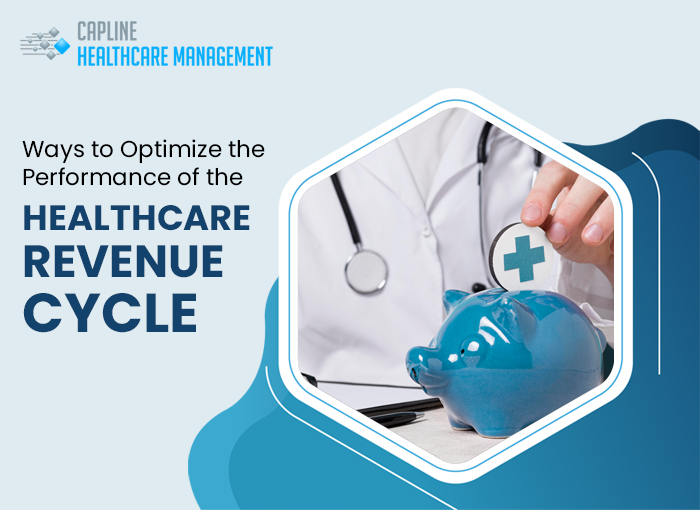Ways to Optimize the Performance of the Healthcare Revenue Cycle
Revenue cycle management remains elusive in the modern healthcare landscape. New policies and reforms have forced the sector to evolve and left many hospitals struggling to maintain revenue in a value-based care reimbursement model.
Today’s digital platforms may assist in the efficient connection and engagement of providers, payers, and customers, resulting in a more long-term hospital revenue cycle management plan.
Revenue cycle managers should focus on a few critical areas to guarantee optimal reimbursement for their medical facility. We will talk about ways to improve performance in this blog.
1. Minimize denials
In the revenue cycle process, claim denials cost each healthcare provider an average of $5 million yearly. Organizations can recoup some of this cost by using an analytics solution to integrate data from several sources to determine the causes of denials. Health systems can use this knowledge to build denial prevention programs and processes and denial recovery treatments.
2. Correct the insufficient and erroneous clinical documentation.
Clinical documentation has a measurable impact on the revenue cycle, making it more than merely a required component of the healthcare system. DRG assignments and medical coding impact medical billing and, if wrongly assigned, can result in denied claims or inappropriate reimbursements. It’s time to confront the facts: how thorough is your doctor’s documentation?
A successful CDI program necessitates tight collaboration among CDI specialists (CDIS), medical coders, and physicians. The CDI specialist reviews all clinical documentation and consults with providers to identify potentially missed clinical indicators or documents that lack specificity, which, if detected earlier, can result in more accurate medical coding, greater levels of care, and Case Mix Index (CMI), better quality reporting, and appropriate reimbursement.
3. Propensity-to-pay insight can help increase the collections.
Patients are responsible for significant healthcare spending, making self-pay accounts the most significant source of bad debt for hospitals and health systems. Lousy debt costs the healthcare business more than $55 billion each year. Health organizations require strategy-driven patient collection systems or a realistic propensity-to-pay forecasting model to avoid bad debt.
4. Verify eligibility & benefits
Verifying patient benefits and eligibility is a critical step in the billing process. While this method takes time, a competent medical billing and credentialing firm can help determine patients’ payment obligations and ensure that doctors get paid.
Before submitting a claim, you can speed up the verification process by deploying technology that allows you to confirm benefits and eligibility before and during patient visits. Select a revenue cycle management solution that connects to your available payers and provides information on effective coverage dates, covered procedures, co-pays, and deductibles to reap the most significant benefits.
5. Online payment options for patients
Patients can make payments quickly and conveniently by using online patient payment alternatives. In addition, the patient is looking for additional options, such as online payment solutions that enable them to pay promptly. To optimize and maintain the revenue cycle, it is vital to assist patients with access to simple and quick payment methods.
Using new integrated payment solutions enhances patient experience and retention while expanding the company’s revenue cycle.
Capline Healthcare Management makes it easy to work.
Capline Healthcare Management is a prominent healthcare help company in the United States. Our Revenue Cycle Management (RCM) branch guarantees that all bills are submitted on time and with the correct information. We recognize the need to provide accurate and complete information to avoid claim delays or denials by the insurance. Contact us today for RCM service that can make a difference.




